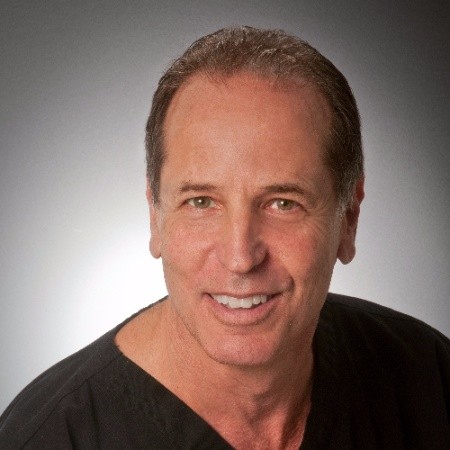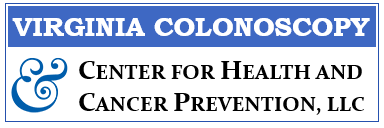STORY
Dr. Keith Berger
I was a product of Norfolk public education at Granby High School. I then attended Harvard University where I obtained a BS in Biology with honors, Duke Medical school for 4 years, subsequently taking a residency at Duke Medical Center in Internal Medicine for 3 years. After that, my final 2 years of specialized GI training were at Yale under the tutelage of Dr. Howard Spiro and Dr. Pierluigi Marignani.
- Board certified Internist and Gastroenterologist
- Been in medical practice here in Virginia Beach for the past 36 years (since 1981) and founded the current Center for Health and Cancer Prevention in 2001
- Has safely performed over 40,000 colonoscopies
- Takes all the appointments himself
- Sees both patients referred from other physicians and patients who are referred by themselves, family or friends

Dr. Spiro wrote one of the major textbooks of gastroenterology–he was one of the most well read and erudite people I have ever met. Dr. Marignani was probably the most talented, educated and brilliant people (let alone doctors) I have ever known. He loved teaching, medicine, art and culture and I owe him a huge debt for the many medical and life lessons he taught me.
I also owe a huge debt to my Dad, Dr. James Berger, who practiced general surgery right here in Virginia Beach for over 47 years. My Dad taught me what was of most importance in practice—treating people with respect and love.
Dad really knew how to talk to people. He sat on the edge of their hospital beds and listened. Although he often didn’t say much, he was always very related. empathetic and reassuring. My Dad was always there for me too, personally and particularly during the first years of my practice. His dad was an ear, nose and throat specialist in Brooklyn, NY.
Incidentally, my younger brother Jeff Berger, who trained here at EVMS with the famed Dr. Britt, took over my Dad’s practice several years ago and Jeff is a very respected doctor. Finally, while I’m on the subject, my older son is an ophthalmology resident at EVMS, so we are up to 4 generations of doctors in our family at this point!
I started a solo practice in GI here in Virginia Beach in 1981, building it into a several physician, multiple office practice. Then in 2001 I started the Center for Health and Cancer Prevention (CHCP), where I have practiced since. My reason for starting CHCP and leaving my old practice was that I wanted to have a unique and extraordinary environment for my patients and staff. I also wanted to simplify my life, so I could concentrate on what really mattered me. The CHCP model allowed me to do that.
We started CHCP by limiting our practice to prevention and screening. So we have a ‘quieter’ practice without emergencies, multiple offices, multiple physicians and all the hustle & bustle. The vast majority of our patients are well and just need screening or a straightforward evaluation or diagnosis. All of us, the staff and myself, really feel like we can ‘be there’ for the patients and make the experience really pleasant, if not fun (we also do joke around a lot, if you’re up for it!).
My current practice reflects several of my commitments. First, as I have said, I wanted a pleasant, caring, respectful environment for patients and the staff. Second, I wanted people to be at ease. People generally have a lot of concerns coming to the doctor, and I am very aware of them.
Colonoscopy itself is a bit intimidating—even for me (speaking from my own personal experience!), someone who has done thousands of them. So we’ve designed everything including having a nurse anesthetist there to make the procedure a breeze.
Back in the early 1980’s, my gastroenterology group was the first in the state of Virginia to perform endoscopy and colonoscopy right in the office, instead of taking people to the more costly and much less ‘personal’ hospital environment. My thought was, ‘you know, these could be done in the office where it’s much friendlier and cost effective.’ As it turned out, after we started that trend, office based colonoscopy is now the standard of care throughout the country.
Another area we promoted in the early 80’s was colorectal cancer screening. I served for several years on the American Cancer Society steering committee, giving countless public and professional lectures on colon cancer screening, and training family practice residents to do sigmoidoscopy (a limited form of colonoscopy done without sedation by primary care doctors). Sigmoidoscopy has now been largely outmoded by colonoscopy, which does a complete job of examining the colon and is completely comfortable because it’s done with anesthesia (see below),
15 years ago when I started CHCP, one of my commitments was to make the patient experience of colonoscopy as pleasant as possible. At that time, most colonoscopies were done with what we called ‘twilight’ anesthesia, or ‘conscious sedation’ where patients were only partially conscious during the procedure. This worked well for most patients, but there were a few people who had a less than pleasant experience. I wanted to eliminate this as a variable. In the past I had used another form of anesthesia, known as Propofol very successfully and with much better (i.e., complete) patient comfort. With propofol you feel absolutely NOTHING during the procedure and there is no nausea or other side effects afterward. We began using Propofol for all of our patients and had excellent, outstanding comfort and safety results. At the time, we were the only GI practice doing it. We actually had to fight a couple of insurance companies to get payment, and it was a struggle. But eventually we prevailed and now almost all the other GI groups have instituted Propofol for their patients. But we were the first ones, and so we are veterans at it. Linda Ferro, CRNA, is our ‘ace’ anesthetist and has worked with me for over 10 years. Our safety record (knock wood) has been extraordinary, and the patients are so happy with their experience because they feel absolutely nothing during the colonoscopy and have no unpleasant side effects afterward. Truly a leap forward in making screening for colon cancer more acceptable and safer.
One final thing I’d like you to know is that I’m committed to people’s overall well-being, not just their colon’s well-being. I’m very practiced at what I do (colonoscopy, e.g.) so the medical side of my practice is really very routine for me. Over the years of practice, I’ve come to personally appreciate my patients and their lives, their challenges, health issues, problems and so on.
It’s rare that a patient and I don’t strike up a conversation about something that has nothing to do with the state of their colon, although that’s important too. I like to feel like I make a difference with people, and strive to do that in every way, even if they just came in for a colon screening.
